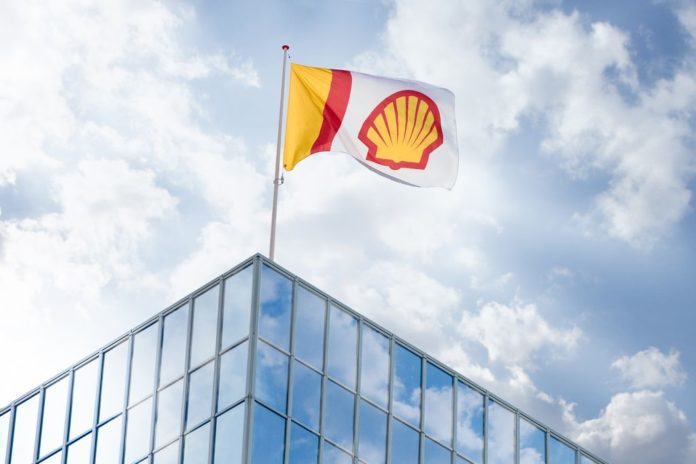Royal Dutch Shell today commits itself to halving by 2030 direct carbon emissions from the extraction and refining operations it directly controls.
The announcement, timed with release of its 3rd quarter financials, comes as the oil supermajor seeks to comply with May’s shock decision obtained by climate activists in a Dutch court.
Judge Larisa Alwin then upheld Friends of the Earth’s case brought on behalf of six campaigning groups that the company’s declarations about cutting its emissions were insufficiently rigorous to comply with the Paris climate accords.
Shell’s duty of care to avoid harming the climate extends beyond its customers and shareholders, the judge ruled, and further into global society. The oil multinational is appealing against the ruling, but says today that, win or lose, it will enact the new target.
Addressing global investors this morning, the oil behemoth says its new ‘absolute’ target for the decade’s end is a 50% cut in its scope 1 and 2 net emissions, as measured at 2016 levels.
A cessation of ‘routine’ flaring of excess gas from Shell’s rigs will also be brought forward by five years, to 2025.
The new emissions target, to be embedded in next year’s business plan, forms part of the company’s rolling Powering Progress strategy, a summary of financial plans for each of its business units.
Group financial results for the latest quarter saw cashflows from continuing activities advance year on year by $5.5 billion, to $16.03 billion, on the back of rising global gas prices.
Shell has re-branded its New Energies division as Shell Renewables and Energy Solutions. Today’s report splits out no discreet numbers for the unit, and no capital expenditure figure. Group capex advanced nearly $1 billion year-on-year, to $4.6 billion.
Shell is betting big on green hydrogen, beginning operations in Cologne in July of its RefHyne PEM electrolyser, developed with ITM Power.
The same month Shell’s Limejump subsidiary started flex trading via Europe’s biggest battery, its 100MW installation at Minety, Wiltshire.
Shell’s purchases of green tech firms in the past 12 months have included lampost EV charger Ubitricity. In September the subsidiary announced it would be installing 50,000 charge posts on UK streets by 2025.
Earlier this month Shell’s clean energy division announced a partnership with developers Clearstone and Island Power to pursue 700MW of solar generation and 100 MW of co-located storage in south-east England.




